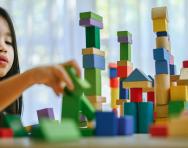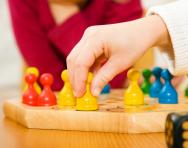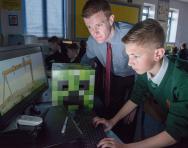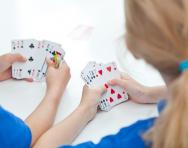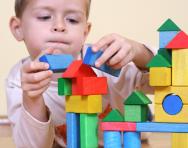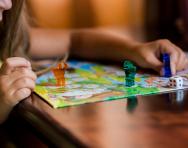Why games-based learning is great for your child

What is games-based learning?
Games-based learning refers to any sort of process that makes the acquisition of knowledge more fun and engaging.
‘Children learn better through play and experience than through “chalk and talk”,’ explains Christopher Thorne, a primary teacher who writes apps as Mr T's Phonics. ‘Games-based learning is a multi-sensory approach to learning, and helps children absorb the lesson through visuals, soundtracks and using their fingers to manipulate screens and buttons.’

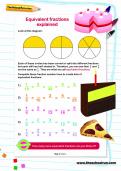
Start a unqiue learning programme!
- Weekly programme for each school year
- Worksheets sent direct to your inbox
- Keeps your child's learning on track
Games-based learning helps children not just to add to their knowledge bank, but to develop skills that are useful in all areas of life, such as abstract thinking, problem-solving and spatial awareness.
‘It helps the skills to become deeply embedded through focused practice that is also really good fun,’ says Murray Morrison founder of learning program Tassomai.
‘Engaging children’s competitive nature also boosts their motivation, whether they’re aiming to do better than their classmates or beat their own previous score.’
Are learning games just about computers?
Many schools now make use of tablets and laptops in the classroom, but games-based learning doesn’t have to involve a screen. ‘Good teachers have been using the principles for years, through activities such as dice games, card games and maths games like Fizz Buzz,’ says Murray. ‘It’s fascinating to see how teachers come up with their own games to make learning more fun.’
Traditional board games also have an important place in helping children to master critical thinking and analytical skills. ‘Games like chess are great to play together, and help children develop social skills and an understanding of rules,’ adds Christopher. ‘The physical process of handling dice or counters can also make the game feel more real and help to build numeracy skills.’
How is games-based learning used in school?
Games-based learning has a variety of applications in the classroom. For example, a whole class might play a game of bingo using French vocabulary, or small groups might take it in turns to complete Mathletics challenges on an iPad. ‘Games-based learning can also be tailored to the needs of each child,’ says Christopher. ‘For instance, while the majority of the class might practise their weekly spellings on paper, a child with learning difficulties such as dyslexia might use an app and find the visual nature helps.’
Can all subjects benefit from games-based learning?
There’s an app for just about anything, from World War I apps that help children get under the skin of history to art software that lets them create their own designs, edit them and then email them home to show their parents. ‘However, certain subjects are better catered for than others,’ says Murray. ‘There are lots of great apps for maths, spelling and verbal reasoning, but not so many for science. But from my point of view, the best games and apps are those that develop broader skills such as problem-solving, which can then be applied across the curriculum.’
How do you choose a good app or game?
With so many apps available for primary-school children, it’s hard to establish which ones are worth downloading. So what do our experts advise?
- ‘Look at reviews to see what other people think of the app,’ says Christopher.
- ‘Talk to your child’s teacher, as they have probably already done some research and found apps that work well for that age group,’ suggests Murray.
- ‘Speak to other parents and find out which games and apps their children are talking about,’ Christopher says. ‘Twitter is also a good place to get recommendations.’
- ‘All children learn differently, so use trial and error to establish which apps work best for your child,’ Murray advises. ‘If, after a few days, your child feels more confident in what he’s doing, the app is having the right result.’
- ‘Don’t just go for free apps,’ Christopher adds. ‘I would rather pay for an app that really engages a child.’
4 of the best games and apps to try to start games-based learning at home
- Planarity is free game for phones or computers that helps build logic and abstract thinking.
- Word Warp: this app is similar to the game Boggle, where you have to make as many words as possible from a randomly generated set of letters.
- Mathletics is a favourite maths learning site in primary schools and offers children the chance to compete against others around the world. At-home annual subscriptions start at £39.99 per child, but you can take a free trial first.
- Play to Cure™: Genes in Space is a free mobile game that uses the collective force of players to analyse real genetic data and help beat cancer sooner.

Give your child a headstart
- FREE articles & expert information
- FREE resources & activities
- FREE homework help
